Sat 4 Aug 2007
The Second International Congress of Crime Writers, 1978.
Posted by Steve under Conventions[2] Comments
In an article entitled “Mysteries That Bloom in Spring,” Time Magazine April 17, 1978, Michael Demarest reported on the Second International Congress of Crime Writers. The conference took place in Manhattan in March and was sponsored by the Mystery Writers of America. You can follow the link to read the entire piece, which is a “state of the art” report on the field of mystery fiction as it was nearly 30 years ago. Of major interest, though, at least to me, is the list of “ten current and compelling exemplars” of the crime fiction novel that’s included at the end.
It is not clear who chose these titles. The implication is that the Congress of Crime Writers had some input, or it may have been Mr. Demarest alone, as he appears to have been fairly knowledgeable of the field. How well the choices stand up I leave for you to decide.
[Thanks to Gonzalo Baeza for pointing the article out to me and the other members of the online rara-avis Yahoo group. Gonzalo’s own blog, Sweet Home Alameda, is in Spanish but is definitely recommended.]
Catch Me: Kill Me, by William H. Hallahan (Bobbs-Merrill; $7.95). New Jersey-based Hallahan, 52, a former adman, won his Edgar with a thriller that scurries from the lower depths of Manhattan to the higher reaches of Washington, D.C., and Moscow, with a side trip to the underside of Rome. Its main sleuths, a burnt-out CIA agent and a doughty Immigration official, set out separately to solve the mystery of the disappearance of a minor Russian poet whose scattered dactyls are the clues to a major East-West confrontation. A masterpiece of bamboozlement, Catch Me is a kind of catch-22 between rival and riven U.S. agencies, written in a style that ranges from hardest-boiled yegg to soufflé, with nothing poached.
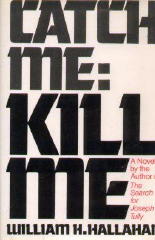
Copper Gold, by Pauline Glen Winslow (St. Martin’s; $8.95). A former Fleet Street court reporter who now lives in Greenwich Village, Winslow, fortyish, focuses on swingin’ London’s demimonde with Hogarthian relish. Her world of pushers, prossies, punks and rotting Establishment pillars is counterpointed by the decent, diligent coppers who come a cropper. What might otherwise have been a merely expert Scotland Yard procedural is elevated by Soho low jinks and, believe it or not, a pervasive and finally persuasive romanticism.
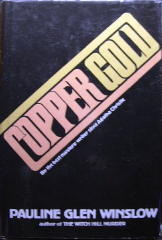
The Blond Baboon, by Janwillem van de Wetering (Houghton Mifflin; $7.95). The Dutch-born author, 47, who has sojourned in many exotic places and once lived in a Buddhist monastery in Japan, now inhabits Maine and writes cleaner English prose than many a Yankee aspirant. However, his stories are still set, with occasional departures (The Japanese Corpse), in Amsterdam, where his sleuths have taken over the turf once occupied by Nicolas Freeling’s late, lamented Inspector Van der Valk. Van de Wetering’s latest Dutch treat, starring the familiar trio of Detectives Grijpstra and de Gier and their commissaris, is cerebral, comradely and sensual, within the generous Hollander dollops that make KLM a perennially popular airline.
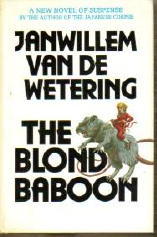
Nightwing, by Martin Cruz Smith (Norton; $8.95). In a tour de non-force suspense novel that mixes virology and American Indian mythology, Hopi hopes and bureaucratic horrors, Author Smith, 35, weaves an all too believable parable of tribal endangerment. His unlikely detectives, a flaky young Indian deputy and an obsessed paleface scientist, encounter a mass killer of a different sort: a vast horde of plague-spreading vampire bats. Smith, who is one-half Pueblo, explicates the Indian psyche and bat pathology as deftly as he creates blood-filled characters.
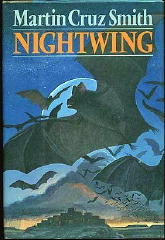
Gone, No Forwarding, by Joe Gores (Random House; $6.95). Gores, 46, who was a card-carrying private eye in California before switching to literary license, dissects a Mob-connected conspiracy to sue, harass and murder the Bay Area-based Dan Kearny Associates detective agency out of business. DKA, as in two previous novels, survives – after an adrenaline-pumping, nationwide search for a missing witness, conducted in large part by the niftiest black op in the literature.
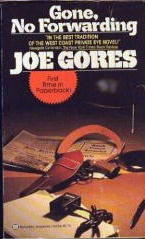
Death of an Expert Witness, by P.D. James (Scribner’s; $8.95). Since James, 57, is English and a woman, she is frequently hailed as a worthy successor to Christie, Sayers, Margery Allingham and Ngaio Marsh. James’ knowledge of locale (in this case, East Anglia’s murky, misty fen country) and contemporary mores (some pretty kinky), her familiarity with forensic science (which is what Expert’s plot is mostly about) and keen psychological insight, all mark her as an original. Her seventh and best mystery novel brings back Scotland Yard’s Adam Dalgliesh, who writes offbeat poetry.
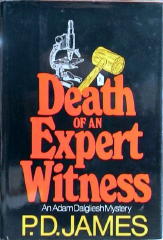
The Enemy, by Desmond Bagley (Doubleday; $7.95). One of Europe’s bestselling suspense writers concocts drama of genetic manipulation, incidental assassination, government machination and Russian marination. Bagley, 54, who knows his computers and test tubes, is equally at home with his locales (England and Sweden, in this book) and his personae, who can be both touching and tough. The Bagleyan denouement raises his novel from mere artifice to the artful.
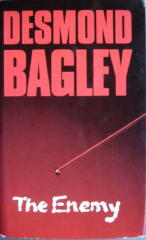
Waxwork, by Peter Lovesey (Pantheon; $7.95). Lovesey’s mysteries are set in late 19th century London, which in too many other authors’ hands now seems exclusively Sherlockian. He writes with accurate verbal and social perception about the upper and lower reaches of Victorian sanctimony and contrivance. Waxwork, 41-year-old Lovesey’s eighth novel, is at once charming, chilling and as convincing as if his tale had unfolded in the “Police Intelligence” column of April 1888.
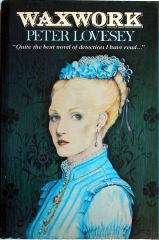
The Baby Sitters, by John Salisbury (Atheneum; $9.95). John Salisbury is the well-guarded nom de plume of a fortyish British historian, political writer and playwright – which adds spice to his first political thriller right from page 1. It is the story of an Orwellian attempt (in 1981) to turn Britain into a fascist state, led by a fanatical Muslim group riding high on Arab oil and abetted by some of England’s leading politicians. The conspiracy is defused by Bill Ellison, a brilliant Fleet Street digger whose investigative team resembles the London Sunday Times’s muckraking groups. Salisbury gives his improbable tale crackling credibility — and is already working on a sequel.
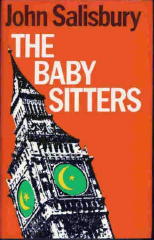
Talon, by James Coltrane (Bobbs-Merrill; $8.95). In his first suspense novel, James Coltrane – in real life a Hawaii-based lawyer named James P. Wohl, 41 – shows himself a young master of the medium. His antihero, Joe Talon, is a superefficient analyst of satellite photos for the CIA in Manhattan. He is also an unrepentantly laid-back hankerer for the surf-and-grass California scene. When Talon detects a curious and erroneous – or doctored? – cloud cover masking a remote area of Nepal, he bucks the Establishment to prove his suspicions, survives sundry assassination attempts and blows open a nasty conspiracy within the Company. He also manages a rather touching love affair and some motorcycle exploits worthy of Evel Knievel.
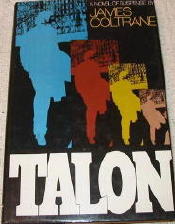
August 13th, 2007 at 12:04 pm
It’s a shame that Catch Me Kill Me is now almost completely forgotten as is author William H. Hallahan. This is a very good book indeed and cries for a reprint.
August 13th, 2007 at 2:37 pm
Xavier
I believe that mystery fans often have short term memories. Or strangely enough, we remember writers from the 1930s more than we do those from our lifetimes, the 1970s. I don’t know why that is, but I thought that this list of book and authors illustrated the point fairly well.
Best
Steve